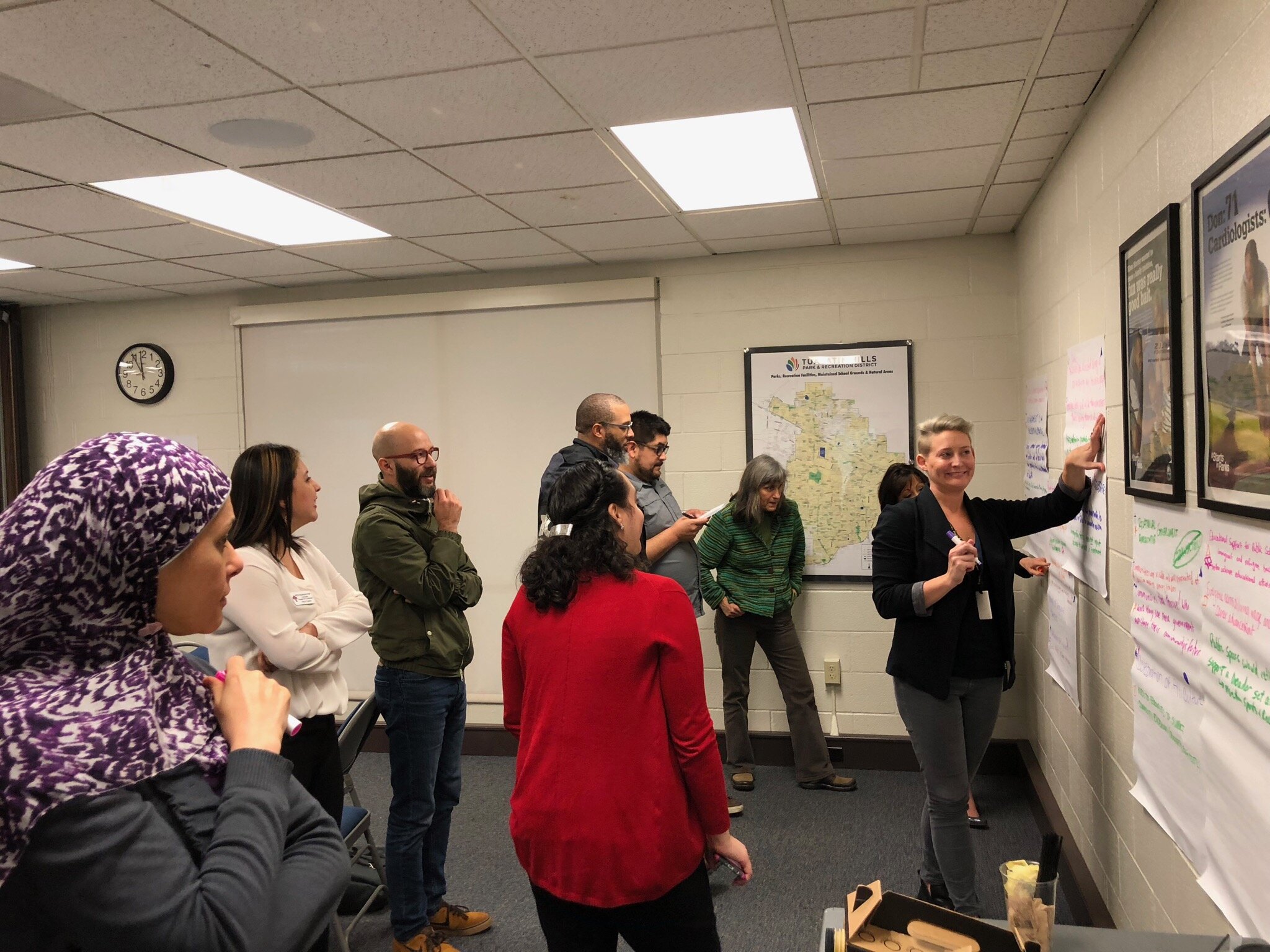The Challenge. making data-driven decisions about us with us.
Communities of color have the solutions for achieving meaningful and sustainable systems change. Their leaders and organizations have long collected data on their experiences, needs, and strategies. However, these data are not seen as scientific or useful by governments and dominant institutions for decision-making, relying on mainstream administrative data, such as the Census. These data are racist because they:
Center white experiences as default
Marginalize and erase communities of color
Normalize deficit based thinking
We need equitable data that reflect the strengths, resilience, and solutions of communities of color. We need equitable data to inform decisions that impact our communities.
We are working toward an equitable future where data-driven decisions about us are made with us.
OUR SOLUTION. community data infrastructure.
Creating a community data infrastructure that builds cross-cultural networks, organizes a statewide community data warehouse, and packages data in a more reliable, organized, and meaningful way for policy, programs, and legislative actions. These efforts will lead to an equitable future as those most harmed by oppressive systems will have ownership of their data and be more self-determined. Their solutions will no longer be ignored by dominant institutions.
10 year vision for success. trust. organize. use.
How do we build a community data infrastructure?
1. Cultivate trust by building relationships with Black, Indigenous, and people of color (BIPOC) stakeholders across the region that collect data, in any format, about their communities. Build a network of community members trained as researchers.
2. Co-construct a statewide data warehouse to organize, systematize, and package community knowledge and solutions as data.
3. Develop agreements with dominant institutions to ensure that our communities control their own data and that no decisions for us are made without us.





